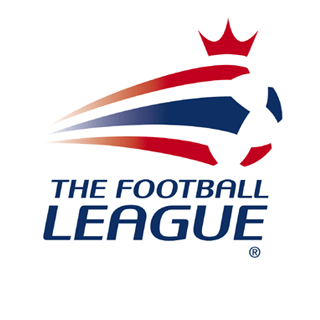English League 2 Betting Guide
 League Two is the lowest full time professional football league in England, sitting three divisions below the Premier League after The Championship and League One. Below League Two is the Conference National which is comprised of some full-time professional and some semi-professional clubs. Along with League One, League Two was sponsored by British bookmaker ‘Skybet’ up until 2016. Other sponsors over the years have included Coca Cola and Nationwide building society.
League Two is the lowest full time professional football league in England, sitting three divisions below the Premier League after The Championship and League One. Below League Two is the Conference National which is comprised of some full-time professional and some semi-professional clubs. Along with League One, League Two was sponsored by British bookmaker ‘Skybet’ up until 2016. Other sponsors over the years have included Coca Cola and Nationwide building society.
Before the formation of the Premier League in 1992, League Two was known as the Fourth Division. Another restructuring in 2004 saw it renamed from the Third Division to League Two, following the introduction of The Championship at the second tier.
Format, Promotion and Relegation
League Two, like League One is comprised of 24 teams. Over the course of the season each team plays every other team both home and away, for a total of 46 matches. Teams are awarded three points for a win, with one for a draw and none for a loss. Due to the length of the season, the League Two (as well as The Championship and League One) starts a week earlier than the Premier League, in mid-august. Most matches are played on Saturday afternoons with occasional midweek fixtures and the league season runs until early May.
The most exciting time in the League Two season is the playoffs, which take place after the league season is finished. At the end of the year the three teams with the highest points totals are automatically promoted to League One for the following season. Teams placed from fourth to seventh take place in a two round playoff to determine the final promotion place. In the playoff, fourth plays seventh and fifth plays sixth over two-legs in the semi final, with the winner determined on aggregate score over the two matches with the team that has scored more away goals progressing if the tie is drawn. If this tie breaker doesn’t separate the teams, the fixture goes to extra time and in necessary penalties at the end of the second leg. The final takes place over a single match again with extra time and penalties being used to separate the sides if necessary. The final is usually played at Wembley Stadium in London.
The most exciting playoff final in recent years was in 2010 when Dagenham and Redbridge narrowly defeated Rotherham United 3-2 after Rotherham coming from behind twice to level the match. Dagenham had little success in League One however, finishing 21st the next season and being relegated back to League Two after just one season.
At the bottom end of the table, the two teams with the worst records are relegated to the Conference National, the highest division of non-league football. If two teams are tied on points at the end of the year, their finishing position is determined by which of them have the better goal difference (goals scored – goals allowed) and if a further tie breaker is necessary then by goals scored. Dagenham and Redbridge narrowly avoided relegation to the Conference National in the season immediately following their return to League Two.
League Two’s biggest success story has been Swansea City, who were promoted from League Two at the end of the 2004-2005 season and are now a competitive side in the Premier League, having been promoted from League One in 2007-2008 and The Championship in 2010-2011. Swansea’s success highlights the openness of the English football system and the freedom for any club in the structure to climb to the top of the pyramid.
Media Coverage, Sponsorship, and Following
As League Two is the fourth division in the order of merit in English football, its following and media coverage are mostly local, and few clubs would have a wide following from outside their own catchment areas. BBC television in the UK features League Two on their highlights program which also gives coverage to The Championship and League Two. In terms of shirt sponsorship deals, teams in League Two are almost entirely sponsored by local businesses and their shirt deals aren’t nearly as lucrative as those in the divisions above them.

